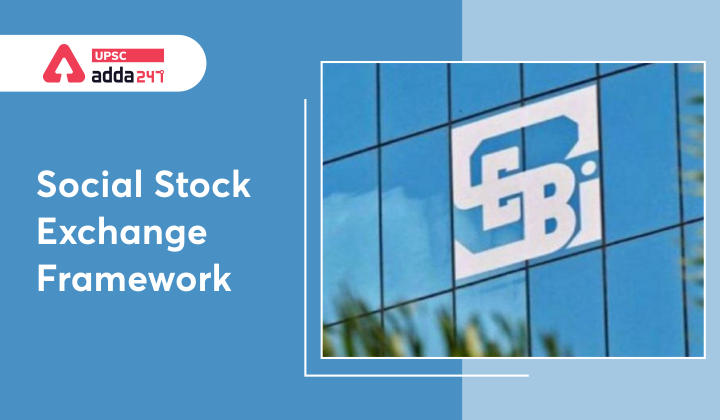Table of Contents
Relevance
- GS 3: Indian Economy and issues relating to planning, mobilization, of resources, growth, development and employment.
Context
- Recently, Securities and Exchange Board of India (SEBI) board has approved the creation of the Social Stock Exchange under its regulatory ambit for fundraising by social enterprises (SE).
Key points
- The proposal to create a Social Stock Exchange was put forth by Finance Minister Nirmala Sitharaman in her Budget speech in July 2019.
- SEBI is also planning to engage with NABARD, SIDBI and stock exchanges to create a capacity-building fund of Rs 100 crore.
About SSE
- Social Stock Exchange will be a new segment of existing stock exchanges.
- Non-profit enterprises and for-profit social enterprises with an explicit social intent and impact will be allowed to list on the Social Stock Exchange.
- These entities will be allowed to raise funds from investors through equity, Zero Coupon Zero Principal bonds, Mutual funds, social impact funds and development impact bonds.
SSE framework
- Under the new framework, social venture funds will be renamed to social impact funds under SEBI AIF (Alternate Investment Funds) regulations with a minimum corpus requirement reduced to Rs 5 crore from Rs 20 crore earlier.
- In terms of auditing of social enterprise, initially only reputed auditing firms having expertise in the area of social audit will be allowed to carry out audits employing social auditors who have certification courses with the National Institute of Securities Management.
- SEBI said that it will amend its regulations towards initial and continuous disclosures for social enterprises that will cover aspects of social and financial impact and governance.




 TSPSC Group 1 Question Paper 2024, Downl...
TSPSC Group 1 Question Paper 2024, Downl...
 TSPSC Group 1 Answer key 2024 Out, Downl...
TSPSC Group 1 Answer key 2024 Out, Downl...
 UPSC Prelims 2024 Question Paper, Downlo...
UPSC Prelims 2024 Question Paper, Downlo...




